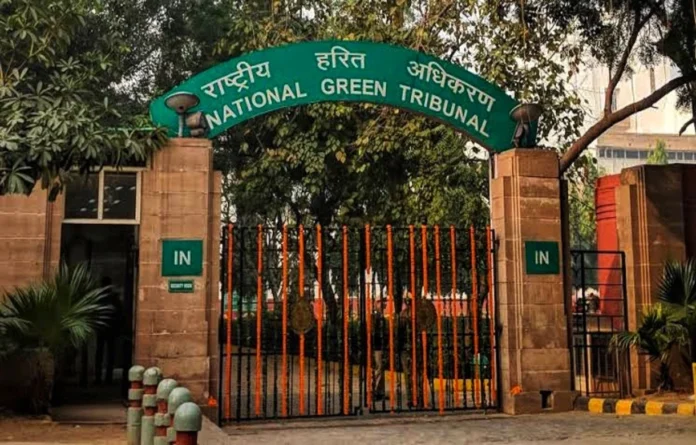The National Green Tribunal (NGT) has taken Suo Motu cognizance of a recent study that has found that pollution and human conflict has significantly increased stress hormone levels among mugger crocodiles (crocodylus palustris).
The petition is registered suo-motu on the basis of a news item dated 14.08.2024.
As per the article, mugger crocodiles, also known as marsh crocodiles, are listed as ‘vulnerable’ by the IUCN and protected under India’s Wildlife (Protection) Act, 1972. Mugger crocodiles rank third in human-crocodile conflict among crocodile species.
The article states that stress hormones, or glucocorticoids, are released by organisms in response to challenging conditions, serving as an adaptive mechanism to mobilise energy. However, prolonged high levels of these stress hormones can lead to long term issues such as reproductive failure and weakened immune function.
The article highlights that over the past two decades, incidents of human-mugger conflict in India have increased fivefold, rising from 57 cases between 2001 and 2010 to 338 cases from 2011 to 2020. As per the research conducted by the Centre on Climate Change of HIMCOSTE which compared mugger crocodiles in Vadodara, an urban area with high pollution and frequent human-crocodile conflicts, with those in the rural Charotar region of Gujarat, which is less industrialized and has fewer conflicts. The key findings are as follows –
Stress Hormone Levels: Mugger crocodiles in Vadodara exhibited stress hormone levels four times higher than those in Charotar and captive crocodiles at the Madras Crocodile Bank Trust (MCBT) in Chennai. This suggests that crocodiles in Vadodara are facing a more challenging environment, leading to heightened stress.
Human-Crocodile Conflict (HMC): Vadodara reported 23 out of 55 HMC incidents in Gujarat between 2019 and 2023, whereas Charotar reported only two incidents. This disparity underscores the impact of urbanization and industrialization on crocodile stress and conflict levels.
Implications for Conservation: The study highlights the adverse effects of pollution and human encroachment on mugger crocodiles, which are classified as ‘vulnerable’ by the IUCN and protected under Indian law. Increased stress levels can lead to reproductive and immune system problems in these crocodiles.
The article states that as per the study muggers in Vadodara, particularly in urban areas, experience significantly higher stress levels compared to those in Charotar or in captivity. This suggests that Vadodara’s muggers face a more challenging environment, potentially leading to long-term health issues or indicating an adaptive response to environmental stressors.
The above news item indicated Bench violation of the provisions of the Water (Prevention and Control of Pollution) Act, 1974, Biological Diversity Act, 2002 and the Environment (Protection) Act, 1986.
The news item raises substantial issues relating to compliance with the environmental norms and implementation of the provisions of scheduled enactment.
“Power of the Tribunal to take up the matter in suo-motu exercise of power has been recognized by the Hon’ble Supreme Court in the matter of “Municipal Corporation of Greater Mumbai vs. Ankita Sinha & Ors.” reported in 2021 SCC Online SC 897.”
Hence, the Principal Bench of Justice Prakash Shrivastava, Justice Arun Kumar Tyagi and Dr. A. Senthil Vel impleaded the following as respondents in the matter:
(i) Central Pollution Control Board.
(ii) Gujarat State Pollution Control Board, Through its Member Secretary.
(iii) Ministry of Environment, Forest and Climate Change, Through its Member Secretary.
(iv) Chief Wildlife Warden, Gujarat.
(v) District Magistrate, Vadodra.
The Bench issued notice to the Respondents.
Since the matter relates to the Western Zonal Bench, Pune, therefore, the Bench transferred the matter to the Western Zonal Bench for appropriate further action. Office is directed by the NGT to transfer the original record to the Western Zonal Bench and the matter is listed on 05.11.2024.


